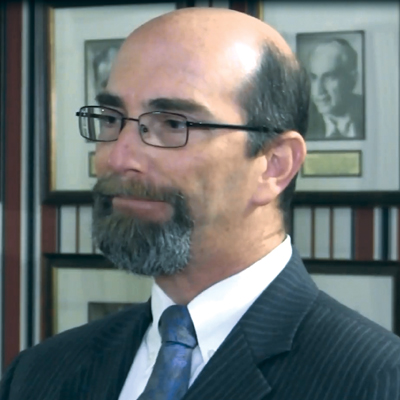Industry Updates
AM Best: Sept. 11 Attacks Changed the World’s Perception of Risk
More also has been put on the insurers through the Terrorism Risk Insurance Program. Every time it’s been renewed, more exposures have been put back to the insurers, said AM Best’s Christopher Graham.
The U.S. government backstop for terrorism risk has bolstered business insurers' capacity and enabled growth in commerce over the past 20 years. Thomas Mount, senior director, and Christopher Graham, senior industry analyst, both of AM Best, discuss Best's Special Report TRIA Has Generally Been Credit-Positive for Insurers. Following is an edited transcript of the interview.
If the Terrorism Risk Insurance Program had not been put in place, what might the insurance market have looked like in the years following?
Graham: It wasn't in place for 2002, and I think that gives us a good guide as to what might have happened, although if you ask 50 people, you might get 50 different answers on this.
We had a lot of companies put terroristic exclusions in, and they probably would have stayed in place.
This stemmed from the reinsurers excluding it, and the primary insurers didn't want to bear the full risk, so they put exclusions in their policies, and the regulators approved it, because everyone knew that, without it, many insurers would leave the marketplace.
Workers' comp is the one line that continued to cover terrorism, because it was statutory. The insurers didn't have any way around that. We saw the advent of workers' comp catastrophe covers come from that.
Would there have been a continued crunch, like we saw in 2002, on the residual markets for workers' comp? That's quite possible. Primary insurers at the time were more worried about their aggregate exposures to a terroristic event, not so much any one risk that they were looking at.
They were pulling out of markets just on aggregate exposure. I think you would have seen more of that.
Where it went from there, could other capital markets have gotten involved? That would be one possible event that might have happened.

Thomas Mount
Do you think the backstop has evolved enough to address today's world?
Graham: Yes, has it evolved enough? Well, they've kept the cap at $100 billion. That's been unchanged, and when you consider $100 billion in 2001 and 2002 versus today, you've probably lost half of that value on inflation. More has also been put on the insurers through TRIP. Every time it's been renewed, more exposures have been put back to the insurers.
How did Sept. 11 impact AM Best's rating process?
Mount: The terrorist attack had a huge impact on AM Best's rating process. Never before had a single event affected so many different lines of business, and coverages all at one time. It was a wake-up call to insurers that they had to do a better job of factoring this aggregate information from all lines of businesses and coverages at each individual location they provided coverage. Right after the attack, AM Best did what they normally do after any catastrophic event. They started calling the rating unit and asking, “What do you think your estimated losses are?” Then we sent out a survey asking questions about how do you capture that information?
How are you going to aggregate and manage that risk and those exposures? A couple years after that, we met with terrorism modeling firms, and insurers. We designed a supplemental rating questionnaire, a set of questions that were designed to say, “Well, what would your losses be if you had a five- or six-ton truck bomb go off at one of your largest aggregate-exposed locations?” We asked for that information gross and then net of reinsurance and net of TRIP. Then we wrote a criteria to use that information. It was a stress test, saying suppose you have that five- or six-ton truck bomb go off at your largest exposed location, and there's no TRIP. What will your losses be? What would be the impact on your capital adequacy? That stress test, since it focuses on what happens if there's a loss and no TRIP to back that up, it gains greater importance every time TRIP comes up for renewal.